Meet our Early Career Ocean Professionals: Subhashi Tania de Silva (Challenge 10)
Subhashi Tania de Silva is a passionate environmental journalist who has been making waves in marine conservation reporting since 2021. Based in Sri Lanka, Tania is on a mission to create compelling stories that not only shed light on the challenges our oceans face but also showcase the incredible work being done to protect them. Her work goes beyond just storytelling—she collaborates with scientists, conservationists, and policymakers to provide a well-rounded perspective on ocean conservation. Now, she’s diving even deeper into her field by studying environmental psychology, aiming to understand the psychological impact of environmental issues and how to drive real change. Tania’s work is driven by a deep commitment to sustainability and a desire to raise awareness about the urgent need to protect our oceans.
1. Hi Tania, can you tell us how are you working towards the Ocean Decade Challenge 10: Change humanity’s relationship with the Ocean?
I’m all about using the power of storytelling to make a difference. Through my articles, I aim to educate and inspire by highlighting the vital role oceans play in our ecosystem, the threats they face, and the steps we can take to protect them. I dig deep into issues like illegal fishing and ocean pollution, using investigative journalism to bring these problems to light and push for change. By collaborating with marine scientists and experts, I ensure my articles are grounded in solid research, making complex topics accessible and actionable for everyone. I also advocate for stronger environmental policies through well-researched opinion pieces, pushing for sustainable ocean governance. To reach a wider audience, I leverage multimedia content—videos, podcasts, interactive web platforms—to engage people and deepen their understanding and connection to ocean issues. My goal is to shift public perception and behavior towards a more sustainable and respectful relationship with our oceans.
2. Why do you think it is important to work towards this Challenge?
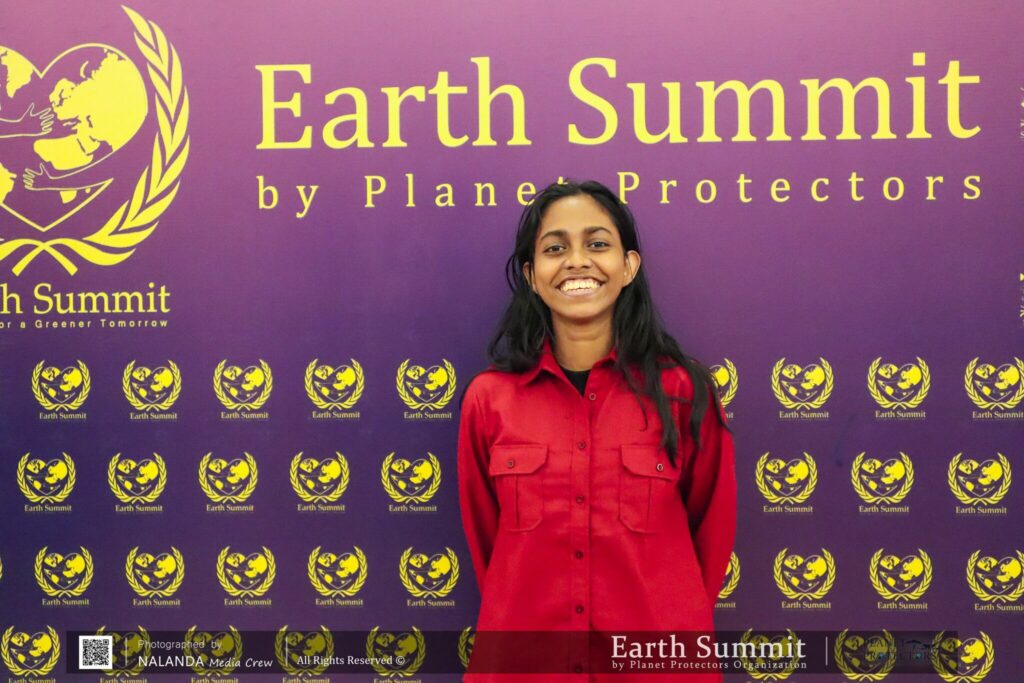
3. What was the Ocean’s influence on you growing up, and what’s has changed for you since you’ve been working towards this Challenge?
The ocean has always been a big part of my life. Growing up, I loved spending time at the beach, where the beauty and vastness of the sea always filled me with awe and peace. But even as a child, I noticed things like plastic pollution on the beaches, which sparked my concern for the ocean’s health. Since I started working as an environmental journalist, my relationship with the ocean has deepened. Seeing firsthand the devastating impact of plastic pollution on marine life has fueled my drive to advocate for sustainable practices and policies. My work now goes beyond just appreciating the ocean—I’m actively involved in highlighting solutions and pushing for change to protect marine ecosystems. This shift has made my connection to the ocean more meaningful and purpose-driven.
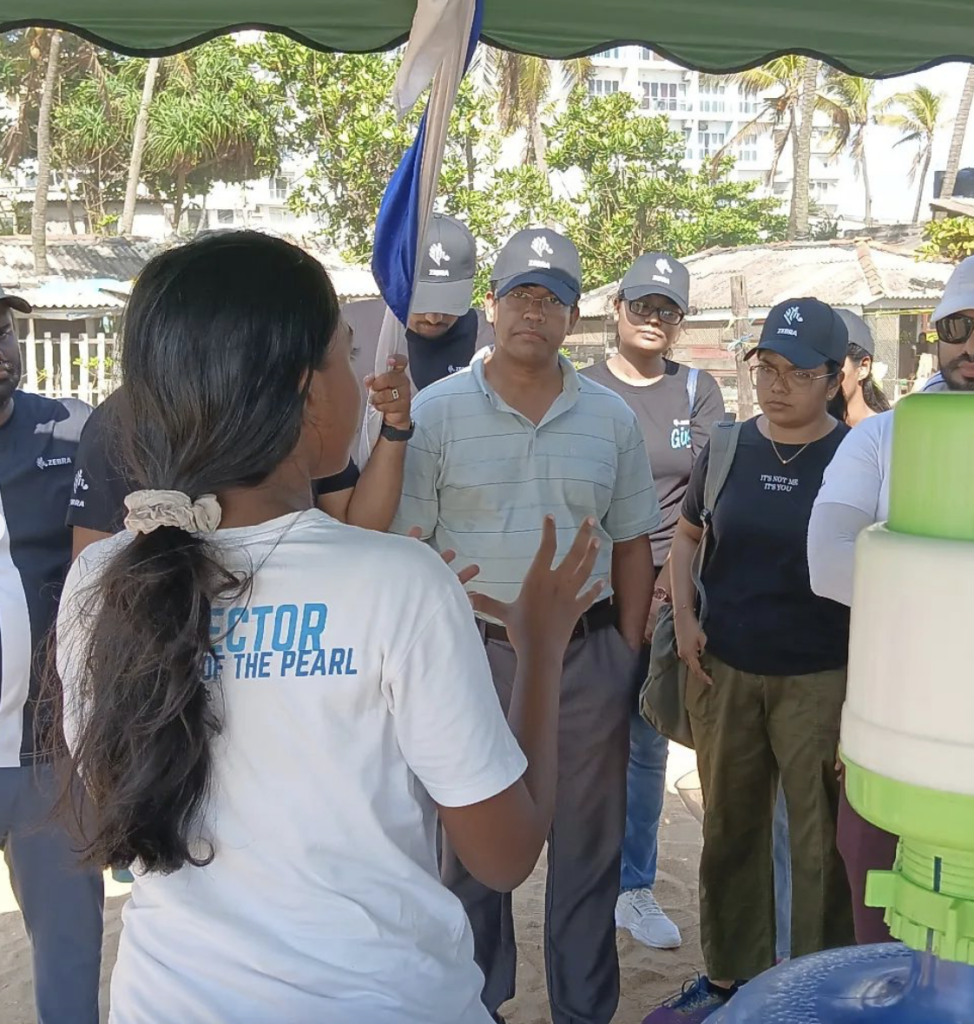
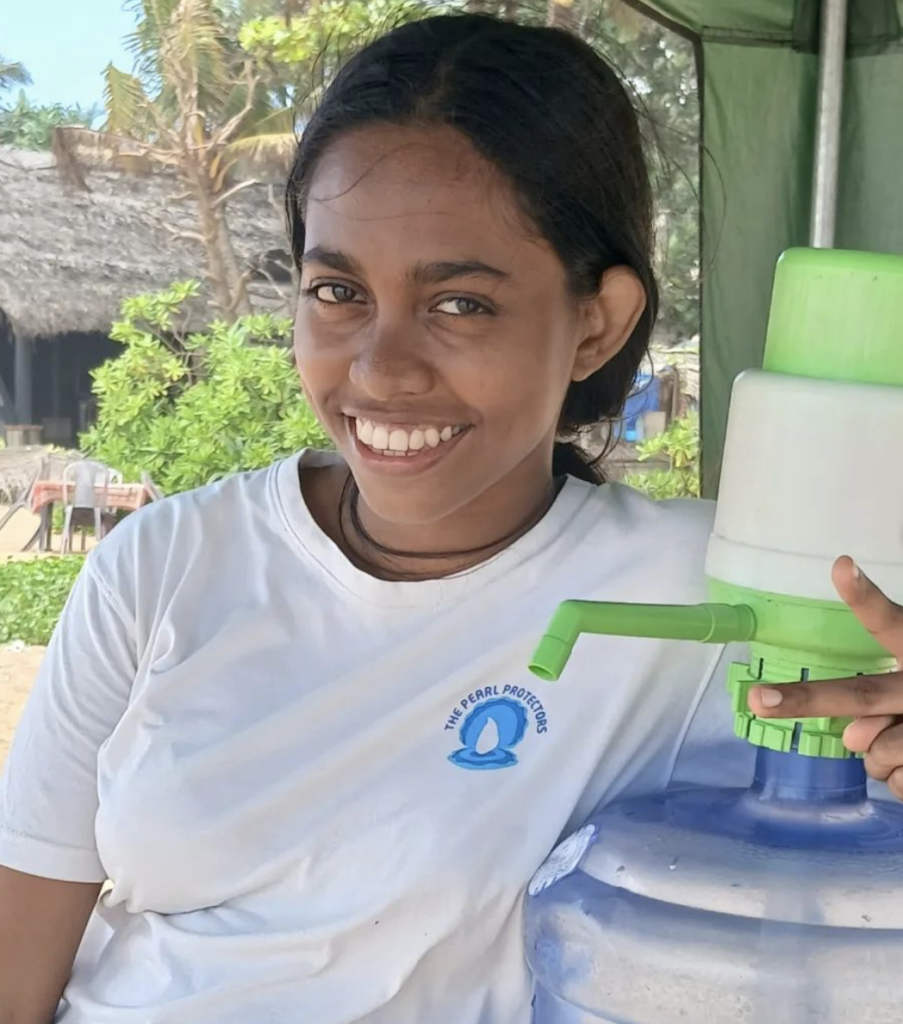
4. What is unique about your perspective/motivation (culturally, geographically, personal connection etc)?
As a Sri Lankan, my connection to the ocean is deeply personal and cultural. Living on an island, the ocean is woven into the fabric of daily life here. Many communities in Sri Lanka rely on the ocean for their livelihoods, whether it’s through fishing or tourism, so the health of our marine ecosystems is crucial for our economic and social well-being. Growing up by the Indian Ocean, I’ve always felt a profound responsibility to protect it. The coastline of Sri Lanka is stunning, but it’s also suffering from severe pollution and overfishing. These aren’t just environmental issues—they’re personal because they affect the people and places I’ve known my whole life. My cultural and geographical closeness to the ocean drives my dedication to advocating for sustainable marine practices and policies. I’m motivated by the need to protect and restore the ocean not only for its global importance but also for the heritage and future of my fellow Sri Lankans.
5. Tell us about some of your recent achievements/highlights/success or alternatively what are you struggling with, or what challenges/barriers are you facing?
One of my recent highlights was serving as a delegate at the Intergovernmental Negotiating Committee (INC 3) for the UN. It was an incredible opportunity to represent Sri Lanka and contribute to international discussions on marine conservation. However, there are still challenges I’m facing, particularly when it comes to marine conservation education in Sri Lanka. Despite the ocean’s importance to our country, our school curriculum lacks comprehensive and up-to-date marine conservation topics. This gap makes it harder to raise awareness and engage students in ocean sustainability from a young age. Unfortunately, efforts to integrate more extensive marine conservation education into the curriculum are met with bureaucratic delays and resource shortages. It’s a frustrating barrier, but it’s crucial to address if we want to equip the next generation to tackle environmental challenges and protect our marine resources.
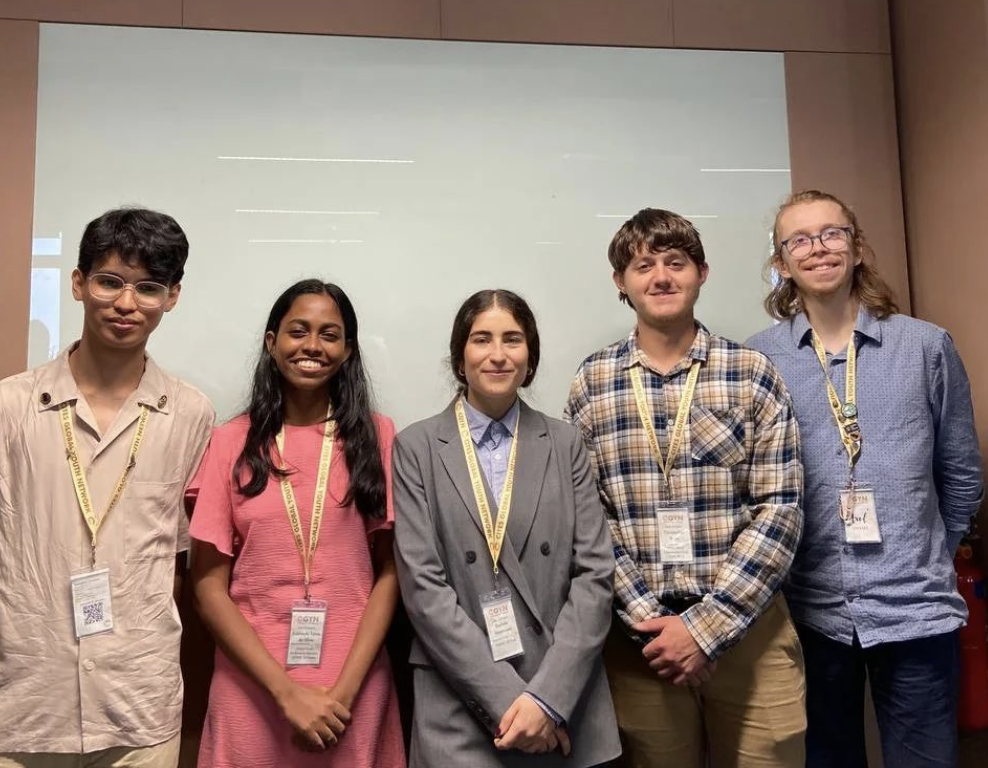
6. How can people support you and your work?
There are so many ways people can support my work! First, simply engaging with my content—reading, sharing, and discussing the articles and reports I produce—can help spread the word about important marine conservation issues. Your feedback and insights can also help me improve my work and foster a community of informed advocates. Public support is also vital for pushing for comprehensive marine conservation education in schools. Advocating for this change can make a big difference. Additionally, collaborations with organizations, researchers, and fellow journalists can amplify our conservation efforts. Financially, supporting investigative projects or contributing to the non-profits I work with can help fund more in-depth coverage of critical issues. Lastly, advocating for policy changes to protect our oceans—from signing petitions to contacting your legislative representatives—can have a huge impact. Together, we can create a stronger movement for sustainable marine practices and policies.
Find and follow Tania on LinkedIn, X (twitter) and Instagram.
